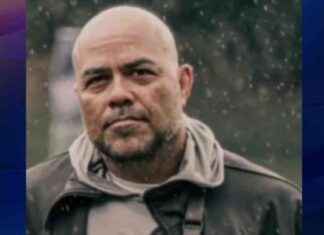On a Tuesday night, in a famous prime-time show, all the viewers on the set take home a state-of-the-art mobile courtesy of Finetwork.
That same night, a competing channel broadcasts the farewell match for the famous Betis footballer Joaquín. Finetwork appears on his shirt, on that of his teammates and in the advertising spaces of the stadium.
Any adolescent who had browsed the networks that night could have come across an Ibai Llanos broadcast, also with the Finetwork brand before their eyes.
The brand also sponsors musical events such as the Alejandro Sanz tour, the Manu Carrasco tour or the Formula 1 driver Fernando Alonso, among many other artists and athletes.
This unbridled commitment to sponsorships is behind the success of this telecommunications company that was born between Pinoso and Elda, in Alicante, barely seven years ago and which closed last May with more than 900,000 customers. A figure that places it as the fifth in the national market, counting on the merger of Orange and MásMóvil, and a market valuation of around 500 million euros.
Enough to consider itself as “the best positioned in the Spanish market to get hold of the remedies (the assets that Orange and MásMóvil may have to get rid of to finalize their merger due to the imperative of Brussels)”, as stated this week by Óscar Vilda, your new CEO.
The reasons for claiming this position are based on the fact that “Finetwork is the only company among virtual mobile operators with a presence throughout the national territory, we do not have our own network as Digi does and also our contract with Vodafone ends in April 2024, with which, in the event of having to change the network, we would not have to pay any penalty”, explains Vilda.
If this objective is achieved, Finetwork could continue its growth project using a part of the fixed line networks of one of the merged parties at a price well below the market price and suppose strong competition for the large operators, as happened at the time. to Más Móvil itself, now the star of the sector merger.
Behind this success story is Pascual Pérez, a former Apple executive who, back in Spain for his retirement and in the absence of an adequate connection to manage his business, deployed his own quality network in his town of residence. “Once in contact with the sector, his entrepreneurial instinct makes him see that there is a business opportunity in the dissatisfied clients of the large operators, especially in the young public. Generation Z became the target audience”, explains Manuel Hernández, general director of business. Associating his image with fun and freshness along with more human attention and a simple offer, with mobile phones and data at a good price and without further complications, has allowed him to gradually gain market share among Spanish telecommunications operators.
Now, the company that began to make itself known in Forocoches has decided that it is time to assume a new role as befits a sponsor of the Spanish team. To this end, it has designed an ambitious growth plan that involves doubling the number of customers and reaching a market share of around 6% in 2024. In 2027, it hopes to reach 15 million customers, a growth in revenue 122% compared to 2022, an ebitda that is 30 times higher and triple or quadruple its fixed and mobile lines.
“Three investment funds are interested in entering our capital to finance this expansion and also a bank. We will make the decision to grow via equity or debt according to the decision of the European Union regarding the assets derived from the merger”, explains Vilda.
While that happens, they will boost their growth with a more qualified offer than mobile access, with which they have succeeded up to now, to fully enter the battle of convergent packages. “Without dropping prices,” says the manager. The current access to Amazon Prime will be complemented with a television package, fixed and mobile lines, and also some online terminal in line with the strategy of its, until now, preferred partner, Vodafone.








